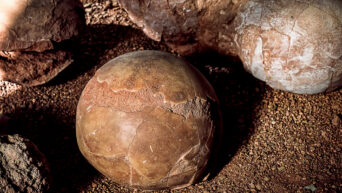For years, farmers have struggled with growing crops in salty farmlands, but scientists may have found a way to reverse that trend.
Scientists from Brigham Young University are using the bacteria found in the roots of plants that can tolerate salt to help defend against those plants that can’t.
They take the roots of the salt-tolerant plants, which are also known as halophytes, shred them apart, and let the bacteria grow in a petri dish. In doing this, over 40 different bacteria isolates have been discovered. While going through these isolates, the scientists noticed that some of them can tolerate ocean-level salt.
From there, the scientists applied these bacteria isolates to alfalfa seeds through a solution they created and tested to see if the seeds were able to grow in high saline conditions. As they were expecting, the alfalfa showed significant growth. The two bacteria isolates that showed the greatest strength in the experiment were Halomonas and Bacillus.
With Halomonas and Bacillus, they were able to stimulate plant growth when in the presences of 1 percent sodium chloride. This level is what has prevented growth of uninoculated plants. This was a tremendous revelation for areas in the world where salt is a problem in farmlands. The more that land is used for farming, the more that the salinity rises. Irrigation water has salt in it and when water evaporates, the salt remains behind and builds up in the soil.
The next step in the process is to carry out field trials on inoculated crops to see if these bacteria can fight against salt.

































